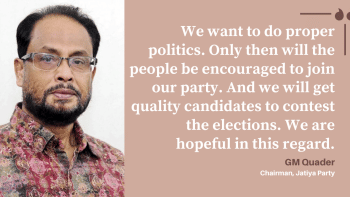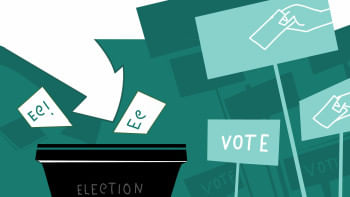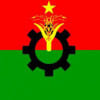‘If an election is not participatory, it is neither free nor fair’

Brig Gen (retd) M Sakhawat Hossain, former election commissioner and senior fellow at the South Asian Institute of Policy and Governance (SIPG) of North South University (NSU), talks about the latest amendment to the Representation of the People Order (RPO) and what the Election Commission's role should be in the coming months, in an interview with Mohiuddin Alamgir of The Daily Star.
The latest RPO amendment has allegedly curtailed the Election Commission's power to suspend voting and withhold results. What is your take on the issue?
There are some laws that are in black and white and do not require any interpretations. In 2008, during the tenure of ATM Shamsul Huda, an amendment of Section 90A of the RPO was made so that the commission could stop or withhold polls in some centres or in an entire constituency during the election process (after the announcement of the election schedule), in case of any violence, or if an environment is created where there can be no free and fair election.
This provision has been in place since 2008, and even the incumbent EC has utilised it. Now the commission says that they proposed the amendment for clarification of the law. With the new change, the EC would be able to suspend the election only on the polling day.
The amendment also bars the EC from cancelling election results and allows it to withhold polling only at specific centres where irregularities occur. So, they tied their hands.
The EC has also added 91AA, a new sub-section, to the RPO, which says the EC cannot take any actions between the announcement of unofficial results by returning officers and the publication of the gazette notification. As far as I know, the EC desires the power to withhold results of parts of or an entire constituency if there are any complaints and a subsequent probe. But, after the amendment, they have the power to withhold election results only for specific centres and not an entire constituency.
Is the amendment actually needed ahead of this important national election, when the last two elections – in 2014 and 2018 – already faced much questioning?
Besides what the RPO grants, the EC also has the inherent power to make decisions. I don't understand what the need was for such an amendment to the RPO. Since 2008, three Election Commissions performed their duties without facing any problems.
Many election experts point out that, according to the RPO, 'election' means the election of a member to a seat held under this order. Some say the definition of election in the RPO is not clear. What do you think?
This definition should be changed. An election means the entire period from the announcement of the election schedule to the announcement of the result.
How much of an impact will such a curtailing of power have on polls, including the next general election?
The international spotlight is trained on our upcoming general election. Those who monitor the election process can see whether there is any intimidation from the government pre- and post-polls. If they find that the government has changed the law to get the election atmosphere to be in its favour, the monitors might cite it as an element of intimidation.
After this amendment, if the commission thinks that they will need to investigate and suspend the election due to violence or anything else, it will not be able to do so under the RPO. But the EC will still be able to investigate and suspend an election using its inherent power.
Of course, if it makes use of its inherent power (in line with Article 119 of the constitution), many might go to court against the EC's decision of suspending elections.
The Election Commission should be transparent to voters, who should be briefed about what has happened. The EC is not a ministry. Even if one person is punished, that should be presented as an example and a warning.
About six months away from the next general polls, is the EC on the right track?
It is known to all that people hardly have confidence in the EC. The incumbent commission has tried to earn people's confidence back. But they have been showing some weakness since the Gaibandha-5 by-polls. A candidate of the Barishal City Corporation election was beaten on polling day. But we did not see the suspension of polling at that centre, what was investigated, or if anyone was found responsible.
Even in connection with election irregularities during the Gaibandha-5 by-polls, many were found to be involved and their information had been forwarded to the concerned departments, but we don't know anything further. No action was taken against any candidates. It's like the EC is going one step forward and two steps back.
The Election Commission should be transparent to voters, who should be briefed about what has happened. The EC is not a ministry. Even if one person is punished, that should be presented as an example and a warning.
Election commissioners often say that it is not their job to ensure all political parties' participation in the national polls. What do you think?
Legally, no. But morally, yes. The EC doesn't have a legal obligation to ensure that all parties participate in the elections. The only legal instrument that the EC has is that they can scrap the registration of a political party if they don't take part in two consecutive national polls.
Political parties are one of the major stakeholders in elections. The commission should have constant liaison with all political parties. If the EC wants to hold an inclusive election, it will need to make an all-out effort to ensure that.
There are two parties in Bangladesh, Awami League and BNP, that have the strength to field formidable candidates in all 300 parliamentary seats.
Only sending out a letter that says when the EC will hold talks with a party is not enough. I believe election commissioners must maintain acquaintance with leaders of different political parties. This kind of personal liaison works. Therefore, they have a moral responsibility to try to hold unofficial talks with the parties.
But we don't see any such efforts, as the EC has taken a stance that it is not their responsibility to bring all political parties to the election.
What are the challenges for the EC in holding the next general polls in a free, fair, participatory, and acceptable manner?
Usually, holding a parliamentary election is a challenge. But this time it is more challenging, when the whole world is watching us and they all want a free and fair election in Bangladesh. Besides, people's confidence in elections and the EC is being eroded. The EC has to work hard. If an election is not participatory, it is neither free nor fair.

 For all latest news, follow The Daily Star's Google News channel.
For all latest news, follow The Daily Star's Google News channel. 












Comments